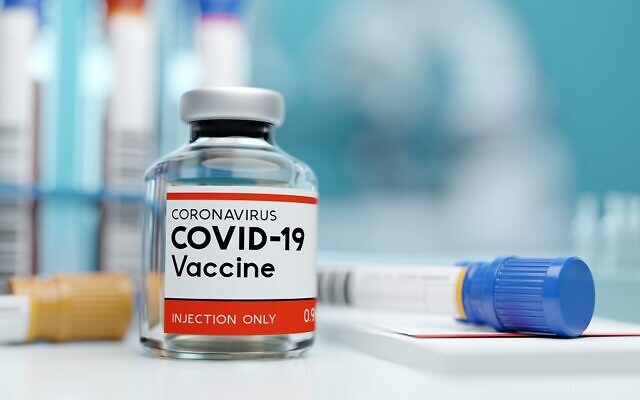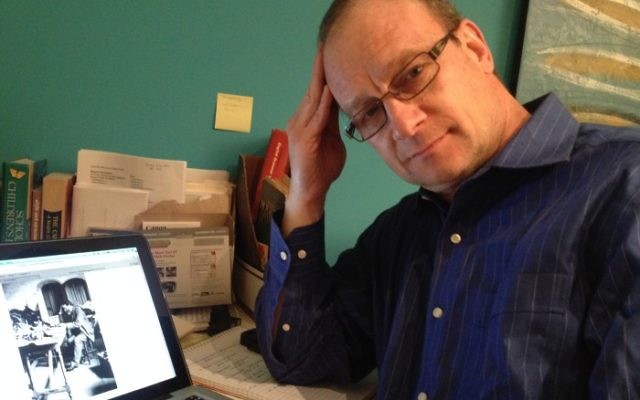Reflecting on Two Years of COVID-19 Life
Benjamin Franklin would have agreed: When it came to this virus, we never were all in it together.
Dave Schechter is a veteran journalist whose career includes writing and producing reports from Israel and elsewhere in the Middle East.
On March 11, 2020, I emailed our travel agent: “Today’s developments have pushed us over the edge.” We would not fly the next day to Paris, visit our son studying in Strasbourg, or tour Barcelona.
Six days later, our son — who already wore a mask — caught a train to Frankfurt. He flew to Chicago and then to Atlanta, arriving with a fever and cough, and soon after lost his senses of taste and smell for a week.
Meanwhile, over the weekend of March 13-15, Jewish Atlanta closed its doors, sending synagogues, schools, museums and agencies into the virtual universe.
In the beginning, we were all in it together — except that we were not then and are not now.
In the beginning, we enjoyed live-streamed concerts and videos of musical apartment dwellers performing on their balconies. People applauded, honked car horns, and banged on pots and pans to show support for health care workers.
In the beginning, testing for the virus was haphazard. Cleaning sprays, wipes, hand sanitizer, and toilet paper were hoarded. Hospitals and elder care facilities sought supplies of gowns, gloves, masks, and other protective equipment.
In the beginning, as the virus struck the elderly and minority communities, many Americans said, “This has nothing to do with me” — and kept on behaving like that.
When a two-week lockdown was urged to slow spread of the virus, we all sheltered in place — except that we didn’t.

When wearing masks and social distancing were recommended, we all followed that advice — well, a lot of us did.
While other countries instituted tough measures, the various levels of government in the not-quite United States were uncoordinated and out of sync.
When kitchens and living rooms became offices and classrooms, the novelty wore off quickly, sweat clothes became business wear, and we learned how to navigate Zoom.
We found seders or shivas on Zoom to be a mixed blessing, as online gatherings of family and friends, especially those far away, compensated for what was impossible in-person — and showed the way to a hybrid future.
We saw elected officials wisely leave medical policy decisions to experts in epidemiology, virology, and public health — until they didn’t.
We discovered that a stunning number of Americans are educated in these fields — flaunting degrees from the University of Facebook.
When prominent figures in politics, media, sports, and culture touted sprays, creams, animal medications, bright lights, bleach, and unapproved drugs — they proved to be immune (to criticism).
We were reminded that scientific breakthroughs are built on years of research that came before.
When vaccines were available, we all lined up — except that we didn’t.
When the militantly un-vaccinated succumbed, even people unfamiliar with the German word engaged in “Schadenfreude.”
We seemed shocked that public health recommendations would change when experience and data warranted altering a course of action.
We learned that public health departments are undervalued and underfunded.
We learned that when a governor says that the people of his state know the right thing to do, that doesn’t mean they will do it.
We saw some states prioritize reopening fitness centers, bowling alleys, tattoo parlors and nail salons.
We learned how a virus outbreak thousands of miles away can disrupt the global supply chain.

We saw that, no matter the circumstances, Americans will complain when they can’t get what they want, when they want it.
We saw that the law of supply and demand still applies to the cost of labor.
We saw that people will be selfish, rude, and combative in stores, on airplanes, at public meetings, and even inside hospitals.
We saw that, even in a pandemic, people will take to the streets to protest injustice — or being asked to wear a mask and be vaccinated — or because they object to the certification of election results.
We witnessed displays of ignorance by people who compared mask and vaccination requirements to the horrors of the Holocaust.
We were reminded that when government distributes money with insufficient oversight, some people do not receive the help they need, while others use connections, find loopholes, and game the system for their own benefit.
We saw that introverts had a built-in advantage over extraverts — but that even introverts need to get out once in a while.
Benjamin Franklin may have said these words at the signing of the Declaration of Independence in 1776, but they fit our response to COVID-19: “We must all hang together, or most assuredly we shall hang separately.”




comments